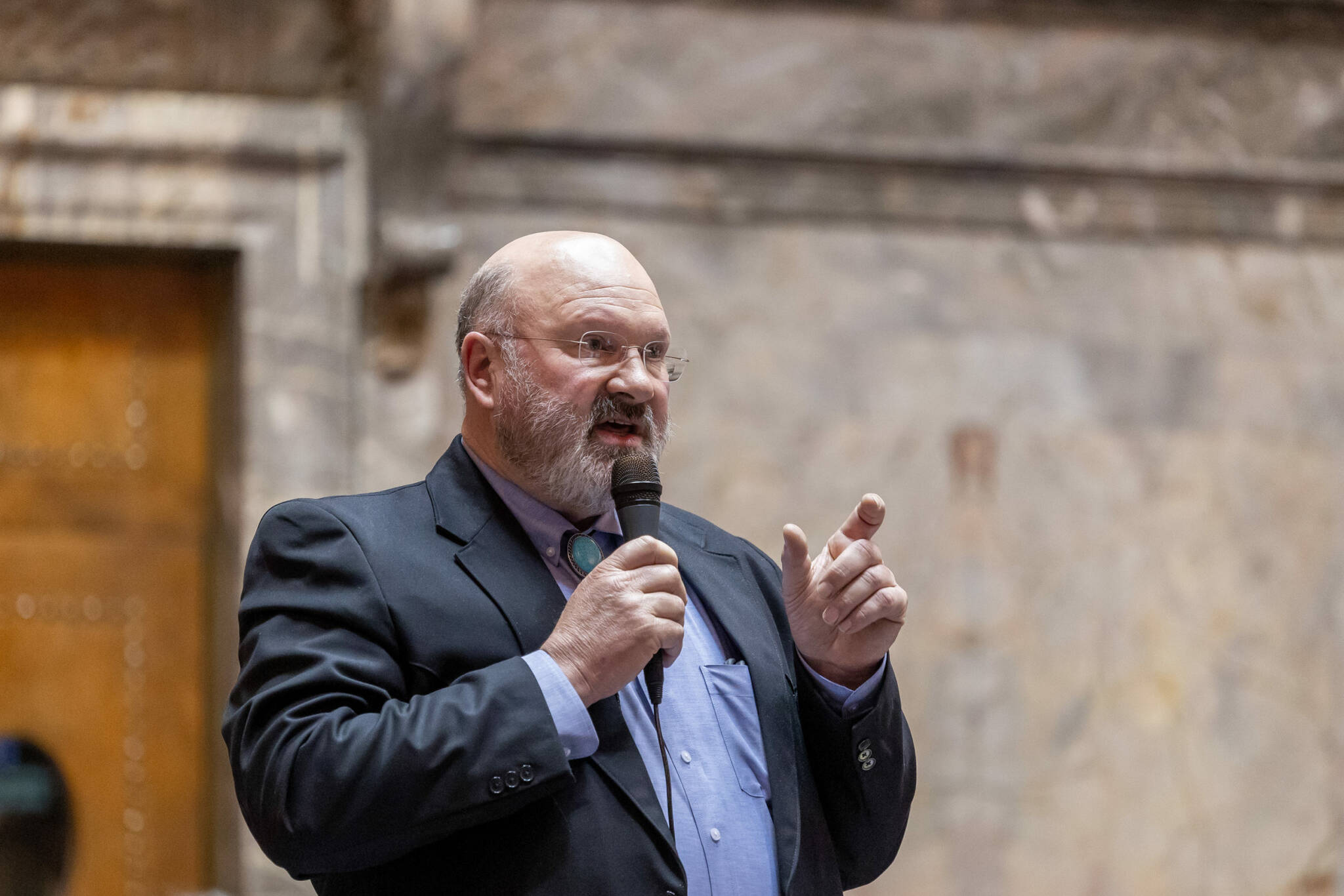Just over a month after Oak Harbor voters failed to pass a bond measure, a state senator is trying to secure $27.5 million in state funds for district construction projects.
If the earmark by Sen. Ron Muzzall (R-Oak Harbor) makes it through both chambers in Olympia, the money could be used to secure an additional $106 million from the federal government to construct two new school buildings. The Department of Defense promised to pay 80% of the cost for the two projects if Oak Harbor Public Schools came up with the additional 20%, but that had seemed out of reach after the $121 million school bond measure failed.
In the senate’s proposed 2023-25 capital budget, $13.9 million would go towards constructing a new building to house both Hand-in-Hand and HomeConnection, which offers early learning programs and classes for home-schooled children. Another $13.6 million would be allocated to rebuild Crescent Harbor Elementary. The Department of Defense promised to pay the bulk of the costs for the two schools because they are on federal land and serve many military families. Muzzall explained this would amount to an additional $55.9 million for Hand-in-Hand and HomeConnection and an additional $53.9 million for Crescent Harbor.
The failed February ballot measure received just over 55% of the required 60% supermajority needed to pass. The bond also included rebuilding Oak Harbor Elementary and updating safety measures at all schools. These projects were not eligible for matching federal funds.
The final capital budget still needs to be negotiated with the House of Representatives and approved by both chambers. The House is expected to release its proposal on March 27.
“That’s when we’ll know whether the House concurs with our choice of spending that money in the Oak Harbor School District,” Muzzall said, who seemed optimistic that members of the House would not walk away from the matching federal dollars.
Muzzall opined that the bond measure failed because “taxpayers feel fatigued with those assessments.” He said the state funding is a way to meet school needs without further burdening property owners in the district.
Muzzall acknowledged that Oak Harbor has a history of having difficulty passing bonds. He said this is a common issue throughout the state, which raises the question: Is the way that Washington funds capital projects for schools flawed?
The Wahkiakum School District filed a lawsuit against Washington state last year claiming that it is. The Seattle Times reported that the district hasn’t been able to pass a bond in 22 years and is claiming that reliance on local taxpayers to fund basic construction costs is a violation of the state’s constitution, which puts education as a top priority.
“We will wait for that lawsuit to be heard to determine whether or not there is a more appropriate way to take care of school districts who struggle to pass levies for structural or physical assets,” Muzzall said. “I think there is an equity issue; I’m not smart enough to tell you how to solve it.”
Muzzall said five generations of his family have been enrolled in the Oak Harbor School District, and he will do whatever he can to ensure students have a positive experience in the schools.
“I just am not one to walk away from this kind of federal funding that Oak Harbor is due because the taxpayers decided not to pass a (bond),” he said.
Oak Harbor Public Schools Superintendent Michelle Kuss-Cybula thanked Muzzall in a statement.
“Through your leadership, we have an opportunity to capture critical Department of Defense federal matching dollars to rebuild two aging schools on military installations that currently house more than 800 students (preschool – 12th grade) every day,” she said. “By approving Senate Bill 5324, you are investing in our children and the future of our community.”



